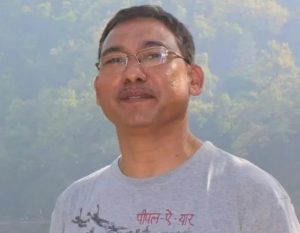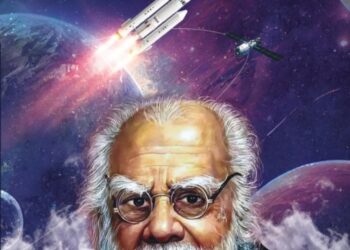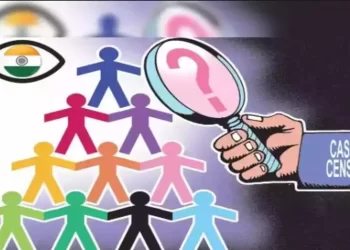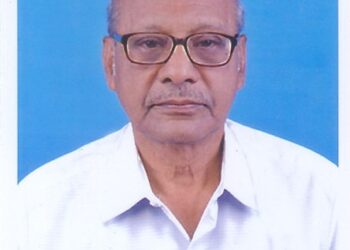Vidya Bhushan Rawat
Social Activist
New Delhi

Hate speech is ‘happening’ because the state is ‘impotent’, says Justice Joseph. Is it so simple ? Will the court introspect how the hate mongers today are using the judiciary and law for their own purposes. Is the state ‘impotent’ or has become a theocratic state with a secular constitution.
Since independence, we have had numerous so-called communal riots. Is there any ‘conviction’ ? Bhagalpur, Meerut, Bhiwandi, Moradabad, Kanpur, Ahmedabad, Mumbai, Jabalpur and so on and on and on. Is there any politician who got prohibited from contesting ? What happened during the Babari demolition? All those hate mongers enjoyed power as the court could do nothing. A chief minister of Uttar Pradesh Kalyan Singh had openly said that for him the ‘court’ of Lord Rama was more important than any other court. What was Kalyan Singh sentenced to? One day’s sentence which made him a bigger hero.
The point is State has not become ‘impotent’ but an active partner in the criminality of crushing dissent and vilifying the minorities and the marginalised. How many cases of violence against Dalits and adivasis have resulted in any kind of penalisation or punishment to the accused. Perpetrators of massacres and riots are the champions of nationalism. Everyday, people are threatening fellow citizens. While you can do anything in the name of Hindutva, abuse and intimidate reading Namaz even inside home has become a crime. In Uttar Pradesh, the district magistrate was given specific funds to get the Durga Saptsati puja in their districts. During the Savan navratris when the Kanwar Yatra started, the senior police officials were dutifully serving the Kanwar Yatris.
The Indian State at the moment is openly and categorically the very antithesis of the Constitution of India which was a secular socialist republic. Obviously, those in power and their darbaris have contempt and hatred for both secularism and socialism. That apart, it is the same castes/classes which love to hate the issue of social justice and politics of inclusion.
Hate speech will not go unless the Supreme Court takes a serious note of it and defines and directs police and administration as where a case can be filed and where not. I mean, the state has been filing cases after cases against people, activists, authors, politicians or any one speaking for their right but take no action against the likes of T Raja Singh or Sudarshan TV channel and its owner. Recently, a Delhi BJP leader was seen threatening the Muslim meat shop owners to shut their shops during the Navratris.
Two incidents reflect the nature of ‘free speech’ that the Hindutva gangs are enjoying post 2014 and the state has kept a shameless silence over it. In fact, given the nature of state brutalities against those speak up or stand up against such deliberate attempt to provoke the other communities, it is clear that the ‘law’ and ‘media’ have become the biggest ‘power’ of the Hindutva group and they are not ‘fringe’ but have absolute impunity. What has happened in Bengal reflect the nature of poison being injected in the minds of the youths, a majority of whom, should have been jobless. They will ultimately become the biggest fodder for the Hindutva groups as the undecided youth who roam around in our streets unable to find a job, suddenly get a sense of power when ‘taken’ ‘seriously’ in a community programme where ‘dangers’ of ‘external’ ‘threat’ become the main propaganda material. Haven’t we seen how the deliberate sloganeering in front of a Muslim shop or religious places have become the order of any Hindutva campaign in the recent period? The aim is to bring Muslims out to respond to these provocative slogans and then through the media plant it as if Muslims have reacted to the Hindu procession.
Media is doing everything to push the polarisation agenda. The court needs to stand up and speak up. There are many issues in which the court can take strong action which will go a long long way to protect our rights and freedom. It is not merely an issue of protecting our rights, frankly speaking, the media has become the biggest threat to our freedom, peace and Constitution. As long as the hatemongers get legitimacy through media and their rhetoric broadcast in the name of ‘their view point’, we will be in deep trouble. It is time for the court to act hard and ask the government to respond. The courts need to explore its response on the issue of freedom of expression and hate speeches. Better, the court forms a commission to discuss and debate a few issues and role and responses of various political parties, leaders, religious gurus etc. The problem with the court is that they speak on a particular issue and keep their eyes shut on the similar issue in the name of purviewing the petition. It would be good, if courts can form various commissions on these issues as well as on misuse of law such as sedition law, UAPA and other things and frame proper guidelines to police so that we have more professional police and administration which is dedicated to the constitution and not to the political ideology of the respective governments sitting over our head. The Supreme Court must act in the greater interest of democracy and freedom of our country. If it really wants to act against hate speech, it must frame proper guidelines so that police and administration are not able to file false charges against individuals while ignoring the real culprits. The court must fix accountability both from the political executive as well as the police and administration for their failure to protect the rights of the people.









